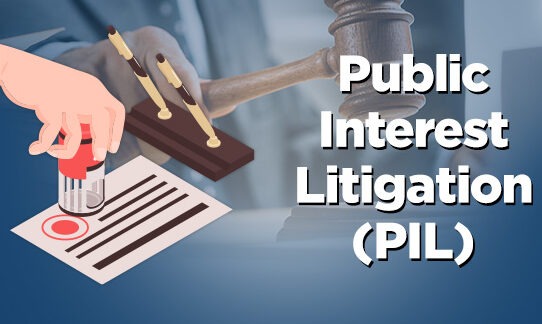PUBLIC INTEREST LITIGATION
Public Interest Litigation - The Basics
Aditya Kaushik
3/3/20253 min read


What is a PIL and Why Does It Matter?
One of the most efficient practices in the Indian legal system for resolving matters impacting society as a whole is Public Interest Litigation, or PIL. Even if they aren't directly impacted, it enables citizens to approach the court on issues where the public interest is involved.
Let's see what a Public Interest Litigation (PIL) is, how it evolved and why its ongoing use—and frequent abuse—raises major concerns for the Indian judiciary and democracy.
Concept and Evolution of PIL
Courts have traditionally applied the locus standi principle, which states that only those who are directly affected by the matter may bring a case. In a place like India, where poverty, illiteracy, and power disparities often prohibit affected individuals from going to court, this was harmful.
When Justices P.N. Bhagwati and V.R. Krishna Iyer expanded access to justice in the late 1970s and early 1980s, this was changed. To enforce the legal rights of those who are unable to do so, they acknowledged that "any member of the public acting bona fide" could present a petition.
The Hon'ble Supreme Court, while dealing with the “JUDGES TRANSFER CASE”, which is S.P. Gupta v. Union of India (1981 AIR 149), vide para 17, was pleased to observe that:— “Where a legal wrong or a legal injury is caused to a person or to a determinate class of persons by reason of violation of any constitutional or legal right . . . and such person or determinate class of persons is by reasons of poverty, helplessness, or disability or socially or economically disadvantaged position, unable to approach the Court for any relief, any member of the public can maintain an application for an appropriate direction, order or writ."
PIL under Indian Law
Even if it isn't expressly stated in statutes, PIL was always incorporated into the law :
In the Supreme Court under Article 32 of the Indian Constitution;
In the High Court under Article 226 of the Indian Constitution;
In the Court of Magistrate under Section 133 of the Code of Criminal Procedure.
Courts have time and again reiterated that, if the matter involves a violation of Fundamental Rights or Directive Principles, the court is naturally allowed to consider petitions in the public interest, even though they are based on letters or articles from newspapers.
Landmark Cases based on PIL
1. Hussainara Khatoon v. State of Bihar (1979)
Issue: The situation of undertrial prisoners who are kept in jails without being given a chance to defend themselves through Trials.
Judgment: The Supreme Court recognized the right to a speedy trial as a fundamental right under Article 21, leading to the release of thousands of undertrial prisoners.
2. Olga Tellis v. Bombay Municipal Corporation (1985)
Issue: Mumbai pavement dwellers were being removed without due care.
Judgment: The Court held that the right to livelihood is an integral part of the right to life under Article 21, emphasizing that eviction without alternative accommodation violates fundamental rights.
3. Vishaka v. State of Rajasthan (1997)
o Issue: Lack of legal framework to address sexual harassment at the workplace.
o Judgment: The Supreme Court laid down the Vishaka Guidelines, providing a framework to prevent and address sexual harassment, until formal legislation was enacted.
Concerns Around Misuse of PIL
Even though PILs were initially intended to be an effective means of ensuring the underprivileged have access to justice, they have also been abused over time, frequently turning into a means of obtaining publicity, personal benefit, or political vengeance.
In State of Uttaranchal v. Balwant Singh Chaufal (2010), the Supreme Court vide para 161 noted that:
“Unfortunately, of late, it has been noticed that such an important jurisdiction which has been carefully carved out, created and nurtured with great care and caution by the courts, is being blatantly abused by filing some petitions with oblique motives. We think time has come when genuine and bona fide public interest litigation must be encouraged whereas frivolous public interest litigation should be discouraged.”
Suggestions for Responsible Use of PIL
The following should be taken into account in order to maintain the purity and utility of PILs:
Committee based preliminary screening: Before they get to the bench, High Courts should have committees to filter out pointless PILs.
Mandatory Disclosure: In order to maintain transparency, petitioners must provide information about their financial and personal interests.
Institutional PILs: By promoting institutional litigation through Non-profit organizations or bar associations, courts can reduce activism that is focused on the individual.
info@verdadlegal.com
+91-8375036120; 7503612022
© 2025. All rights reserved.
Address
3, 2nd Floor, Sharbati Complex, Jwalaheri, Paschim Vihar, Delhi-110063
Commercial Litigation
Matrimonial & Family
Civil Dispute Resolution
Criminal Defence
Banking & Finance
Property & Real Estate
Intellectual Property (IP)
Employment & Labour
